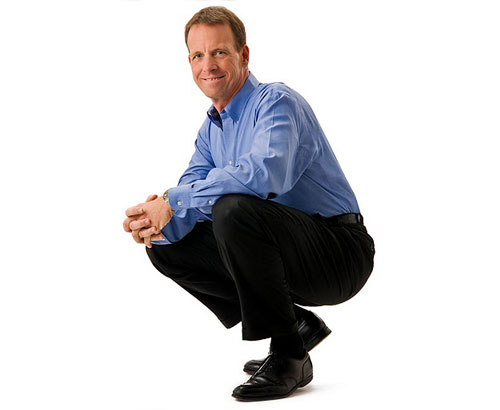The Lure of the Franchise
The franchise industry took a hit during the global financial crisis, like most other business sectors, but in recent times interest has been picking up again. Patricia Moore reviews the market and obtains advice for both franchisors and franchisees.
The franchise industry took a hit during the global financial crisis, like most other business sectors, but in recent times interest has been picking up again. Patricia Moore reviews the market and obtains advice for both franchisors and franchisees.
New Zealand may not have invented franchising but Kiwis have taken to it like ducks to water; indeed we could well be the most franchised nation in the world.
The 2010 Franchising NZ Survey found the sector employs around 80,400 people in 450 franchise systems over 23,600 outlets – as Simon Lord of Franchise New Zealand magazine and website points out, that’s effectively one franchise per 186.5 Kiwis.
And, while 94 percent of survey respondents represented home-grown franchise systems, Lord says the overall sector-wide figure is somewhat lower than that. He believes around 25 to 30 percent of franchises operating in New Zealand originated overseas.
“A quick count through the franchises listed in our Directory alone will identify around 75 overseas-founded systems out of 250 listed,” he says.
The survey, carried out by Massey University, in conjunction with Australia’s Griffith University, was the first research done on the sector since 2003 and was an important one, says Graham Billings, executive director of the Franchise Association of NZ.
“It was much more thorough than any previous research and it’s enabling us to compare the New Zealand franchising situation with that of Australia, which Griffith has been surveying for some years.”
The report also means the Franchise Association is able to talk more coherently to the Government about the importance of franchising as a sector, says Billings.
The exercise will be repeated on a biennial basis with the 2012 survey currently underway and they’re hoping for a greater degree of participation.
“Although the 2010 response rate (21 percent) was higher than Australia, we’d like to see it increase,” says Billings. “We’d also like respondents to be more forthcoming in terms of their financial performance. The responses in that area were not sufficiently robust to be definite about.”
“Franchising almost doubled between 2003 and 2010,” says Sean Dwyer, national franchise manager for ANZ and National Bank. “Potential franchisors see the benefits of going the franchise route: secured distribution channels, spreading the risk, minimum capital and having self-motivated business owners.”
But whether franchising a business or buying a franchise, it’s the quality of the homework that makes all the difference. “There’s no substitute for due diligence,” says Dwyer. (He advises checking their Business Resource Centre and Biz Hub websites.) “And potential franchisors need to engage the assistance of a reputable franchise consultant. Franchising does cost but it’s worth spending the money now and getting it right, rather than going down the wrong path and regretting it later. The old saying ‘penny wise and pound foolish’ comes to mind.”
“You’d be surprised how many people think they can do it themselves”, says Win Robinson at Franchize Consultants. “In most cases they can’t. I know of one Australian company that’s been over here and failed, three times.”
Franchize Consultants assists the development of new franchise systems, but Robinson says they’re currently spending a lot of time reviewing existing systems. “The financial crisis has exposed weaknesses in many areas, mainly because the franchise wasn’t structured correctly in the first place, or the market has moved considerably and they haven’t kept up.”
System reviews are often driven by franchisees either not performing to expectation or becoming dissatisfied. “One of the worst things a franchisor can have is a dissatisfied franchise owner – because they talk, particularly to potential franchisees.”
No guarantees
Franchising a business can see a small local enterprise become a nationally known brand. But while franchising is a proven road to growth it doesn’t come with a guarantee. You may have developed a well-established, hugely profitable enterprise, but will it work elsewhere?
Has it a unique proposition that sets it apart – something that appeals to both potential consumers and franchisees? Can you lead and mentor others? Do you have a team of experienced franchise professionals to guide you through the process? Can the business support the cost of franchising?
Attracting suitable franchisees and sourcing finance are both issues concerning the sector, and while the banks may not have changed their stance on funding franchises, the reality is many potential franchise buyers have less equity than they had before the property market imploded, says Lord. “Therefore they haven’t been able to borrow as much as they might have four years ago.”
However, after a quiet few years, Daniel Cloete, Westpac NZ national franchising manager, is seeing renewed interest in franchising. “On-selling of existing outlets is happening quite a bit more and some of the franchisors have quite extensive growth plans that will contribute to a bit more life in the industry. While it’s still early days, there’s greater interest in franchising from local businesses and from overseas systems. Prices have probably got a little more realistic which makes deals stack up.”
Being your own boss has a lot of appeal; as a franchisee you are ‘the man’ with the added confidence that comes from operating a proven business system, plus the backup and support of the franchisor. But despite the fact that the survival rate of franchises is better than that of independent small businesses, there
will always be failures. Undercapitalisation and mismanagement are two of the main reasons. Personality comes into it too, and a potential franchisee needs to ask him or herself if they have what it takes to run a business.
Extensive lists of pre-purchase dos and don’ts are readily available. Doing something you love is a key, as is the profitability of the enterprise – and not underestimating the costs involved. Really getting to know the franchise by looking at it from the perspective of both buyer and customer, and getting the right professional advice also rate highly.
The past few years have been challenging for businesses across the board; the franchise sector has been no exception but franchises with robust structures, particularly smaller businesses, have actually done well, says Lord. And he notes New Zealand is beginning to reflect overseas trends for consolidation. “We’re seeing a trend towards major companies owning a number of franchise brands, supporting even bigger bulk buying and spreading administrative costs.”
He says there’s also a trend for franchisees to own multiple outlets, which can give a franchisee “more muscle within the system.”
Patricia Moore is an Auckland-based freelance writer. Email [email protected]
Websites to visit:
www.franchise.co.nz
www.anz.co.nz
www.westpac.co.nz
www.nbnz.co.nz
www.franchize.biz
www.gazeburt.co.nz
CASE STUDY: FRANCHISOR
Building a franchise
An understanding of the building trade, and identifying three areas where the home renovation industry fails to deliver, was the catalyst for the Refresh Renovation franchise, says director Chris Caiger. “Refresh is a classic example of applied marketing.”
He lists lack of communication which leads to renovating becoming “an awful experience – over-time and over budget”, one-man-band builders reluctant to take on new products and technologies, and the fact that the builders themselves do not have a business asset they can market. “On retirement that business value goes with the individual. This is a major problem in an ageing workforce.”
They’re issues that required a new approach and business model, he says.
“Franchising was an important part of the model we adopted because it can address all three points of failure. It’s more complicated than a burger bar but all the players relate to the problems very easily and support has not been hard to find.”
Effectively Refresh enables builders to get off the tools and become business owners rather than tradesmen – hiring other builders, designers and tradesmen to work on a project. However, some of the most successful Refresh franchisees are not builders. “They’re developers and designers. Building skills are one of the roles required in the team but not necessarily by the business owner.”
A couple of years were spent creating the strategy, processes and systems, before they began a pilot franchise. Building the business management system was more expensive than they’d planned for. “Many franchisors seem to sell a few franchises first to get the money to invest in infrastructure later.” He says the advice they got from others in the sector was to get the IT systems developed first as trying to retro-fit them makes it almost impossible to get good compliance.
“We ran the pilot for about a year then started our roll-out, focusing on Auckland first so we had local businesses to iron out the bugs. Now we’re looking further afield.”
Because the concept didn’t already exist, initial scepticism meant getting the first franchisees on board was a hurdle, but growth has been rapid and Refresh now has an established network.
Refresh runs an extensive marketing programme and their website is central to that effort, generating a great deal of traffic.
“Renovate magazine was launched to help generate content for the website and that’s proving very effective. We’re also using Twitter, Facebook and blogs, and track the effectiveness of the different communications.” A major focus is building a good database of homeowners interested in renovations then providing them with the inspiration and advice so that when the time comes Refresh will be top of mind. “We work closely with manufacturers to develop attractive promotions for homeowners.”
The Refresh approach is based on the concept of value chains, says Craiger. “I’d advise any potential franchisor to thoroughly understand the value chain they’re part of, then use that to develop their value proposition, offer, marketing strategy and communication programmes.
“If they want to discuss what that means, drop in for a chat over a coffee!”
CASE STUDY: FRANCHISEE
It’s a wrap!
Greig Garthwaite is probably a typical Kiwi. He graduated from Uni, worked in a job he enjoyed for a few years, then took off overseas, where he gained experience in a wide range of industries before coming home and deciding the time was right to be his own boss.
Today he’s the Pack and Send franchisee in Queenstown and business is booming. The company packs goods and despatches them, anywhere in the world – a service that’s in demand in a resort town like Queenstown.
Part of the appeal for Garthwaite was a significant support network plus well-established systems that have been proven throughout its growth in Australia.
“That said, the support and systems are not too restrictive and allow the owner to determine the success and growth with individual input and ideas.”
The freight industry is very competitive and Pack and Send fills a unique niche that makes for exciting potential growth, he says.
“But there’s a lot more to the business than packing! It’s an opportunity to be in control of your own business and have the ability to influence it – whether it be marketing, developing client relations or working on the next unique item that comes through the door.”
Garthwaite is new to business ownership and admits that in spite of two weeks intensive training in Sydney, “being thrown in at the deep end to some extent was always inevitable. From the day we opened there have been ongoing challenges and learning curves to work through. But that’s all part of business, whether franchised or not. The support is always there and with a well-established track record in Australia and future development of systems in the pipeline, things are looking good.”
As a relatively small network in New Zealand, the potential for mass media marketing is limited but Garthwaite says online marketing is proving very effective.
“And we get brand recognition from Aussies and from stores now opening in the UK. With time and presence this will grow.”
Garthwaite stresses the importance of due diligence and says for potential franchisees, particularly those for whom it will be a first business, it’s important to be aware of your strengths and weaknesses as these will affect the respective franchise opportunity.
“A franchise is not a recipe for success but it does generally provide a good basis and support to establish your roots first time round. Some people never leave the franchise model.”
A legal perspective
Working with professionals who fully appreciate the complexities of the franchise sector – be it establishing a franchise or buying one – is essential, says David Munn, partner at Auckland law firm Gaze Burt.
“Franchising is a particular commercial model; the key is having a thorough understanding of the business dynamics behind it, then applying the necessary legal skills.”
Unless that understanding exists at a deeper level, professional advisers working in the territory are fairly significantly handicapped and can be putting their clients at risk, he says.
Munn has been a significant supporter of the franchise sector for many years and believes, regardless of the nature and size of the operation, a franchisor should never forget he or she has a responsibility to people who buy into their systems.
“When you move into franchising you’re taking other people and their businesses and their capital and their families with you. That’s a huge responsibility so it’s important to do it very, very well. Understand what you’re getting into because you can mess up people’s lives.
“By franchising you’re moving into a different business. You’ve got to resource it, you’ve got to support people; you’ve got to be thinking ahead, strategising.”
Expert advice is just as important when buying a franchise, says Munn. Franchising in New Zealand is unregulated and while it makes sense to deal with a member of the Franchise Association there can still be problems through lack of thorough due diligence.
“It’s never straightforward and it’s important to be asking really penetrating questions about the commercial structure, make-up and credibility of the system and the franchisor.
“Think of franchising as a commercial marriage; you can have a marriage made in heaven – or you can have the marriage from hell.”





